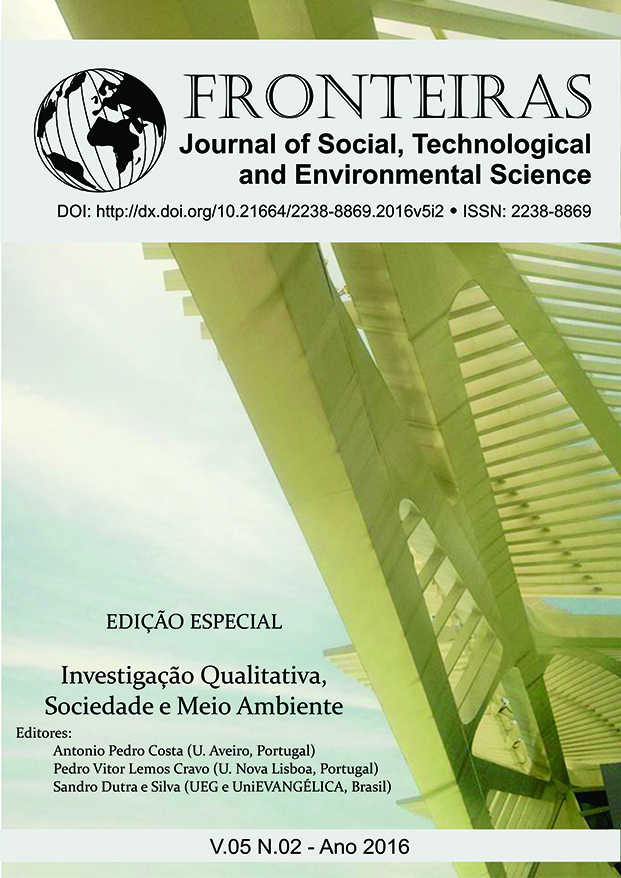A Worrying Trend. Ethical considerations of using data collected without informed consent
DOI:
https://doi.org/10.21664/2238-8869.2016v5i2.p14-28Resumen
There is a worrying trend in the social sciences whereby researchers bypass ethics review. Autoethnographers often exempt themselves from IRBs claiming the stories they tell are their own; even when others written into their story might not consent. A similar condition emerges in ethnography where novice researchers generate data prior to commencing postgraduate studies both evading ethical oversight and without demonstrating basic ethical considerations. Goffman turned her PhD into On the Run based on six years of fieldwork in inner city black neighbourhoods. Venkatesh's Gangleader for a Day, also based on his PhD, describes researching in an inner city high rise without ethical considerations. How will future social science postgraduate students read these best sellers? Author created a short scenario encapsulating these two books asking academics and IRB members to review it. Under what conditions would they supervise or approve data collected prior to enrolling in a PhD that demonstrated no evidence of ethical considerations. Respondents expressed concern for data collected without ethical considerations seeing it as inadmissible, similar to the legal term fruit of the poisonous tree. They recognised attempts to gain retrospective consent as more likely to exacerbate than alleviate harm.Citas
Author M 2004. Internal confidentiality: when confidentiality assurances fail relational informants. Qualitative Sociology, 27:101-106.
Author M 2010. A critique of current practice: Ten foundational guidelines for autoethnographers. Qualitative Health Research, 20(12):1599–1610.
Author M, Fitzgerald M 2006. If ethics committees were designed for ethnography. Journal of empirical research on human research ethics, 1: 71-78.
Clandinin DJ, Connelly F M 2000. Narrative inquiry: Experience and story in qualitative research. Jossey-Bass, San Francisco.
Ellis C 1986. Fisher Folk: Two communities on Chesapeake Bay. University of Kentucky Press, Lexington.
Ellis C 1995. Final negotiations: a story of love, loss, and chronic illness. Temple University Press, Philadelphia.
Ellis C 1996. Maternal connections. In C Ellis, A Bochner (Eds.), Composing ethnography: Alternative forms of qualitative writing. AltaMira Press, Walnut Creek, CA. p. 240-243
Ellis C 2007. Telling secrets, revealing lives: relational ethics in research with intimate others. Qualitative Inquiry, 13(1):3-29.
Goffman A 2014. On the run: Fugitive life in an American city. Picador, New York.
Goffman E, Lofland LH 1989. On fieldwork. Journal of contemporary ethnography, 18(2): p. 123.
Goffman EA 1961. Asylums. Anchor Books, Garden City, NY.
Guillemin M, Gillam L 2004. Ethics, reflexivity, and ‘ethically important moments’ in research. Qualitative Inquiry, 10(2): 261-280.
Haggerty K 2004. Ethics creep: Governing social science research in the name of ethics. Qualitative Sociology, 27(4): 391-414.
Iphofen R 2011. Ethical Decision Making in Social Research: a Practical Guide. Palgrave Macmillan, London.
Israel M 2015. Research Ethics and Integrity for Social Scientists. 2.ed. Sage, London.
Jago B 2002. Chronicling an academic depression. Journal of Contemporary Ethnography, 31: 729-756.
Richardson L 2007. Last writes: a daybook for a dying friend. Left Coast Press, Walnut Creek, CA.
Sieber J, Author M 2013. Planning Ethically Responsible Research. Sage, California.
Tolich M. Fruit of the Poisonous Tree: Worrying Trends in Qualitative Research. CIAIQ2016 [proceedings on the internet]. 2016 [cited 2016 Nov]; 5: 16-21. Available from: http://proceedings.ciaiq.org/index.php/ciaiq2016/article/view/1049
Van Den Hoonaard W 2011. The Seduction of Ethics: Transforming the Social Sciences. University of Toronto Press, Canada.
Venkatesh S 2008. Gang Leader for a Day: A Rogue Sociologist Takes to the Streets. Penguin, New York.
Venkatesh SA 1997. The social organization of street gang activity in an urban ghetto. American Journal of sociology, 103(1): 82-111.
Descargas
Publicado
Cómo citar
Número
Sección
Licencia
Esta revista oferece acesso livre imediato ao seu conteúdo, seguindo o princípio de que disponibilizar gratuitamente o conhecimento científico ao público proporciona maior democratização mundial do conhecimento.
A partir da publicação realizada na revista os autores possuem copyright e direitos de publicação de seus artigos sem restrições.
A Revista Fronteiras: Journal of Social, Technological and Environmental Science segue os preceitos legais da licença Creative Commons - Atribuição-NãoComercial 4.0 Internacional.


